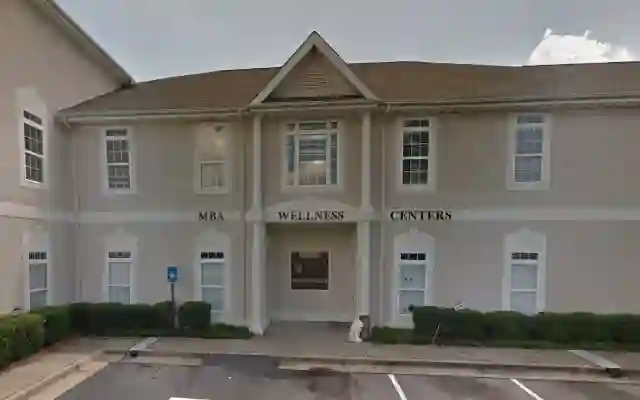Addiction Treatment Center at Naukeag (McLean Hospital)
The Addiction Treatment Center at Naukeag (a McLean Hospital program) provides structured, evidence-based residential addiction care for adults who have completed detoxification and need continued around-the-clock treatment. Located in a secluded, wooded setting in Petersham, Massachusetts, Naukeag combines clinical addiction psychiatry, behavioral therapies, and peer recovery supports to help adults with substance use disorders and…
CMC: Berkshires (Center for Motivation & Change)
CMC: Berkshires is a small, private 15-bed residential treatment program situated on a private 200-acre manor in the Berkshire Mountains of Massachusetts that blends evidence-based clinical care with wellness and family-focused supports. The program emphasizes individualized psychotherapy (multiple weekly 1:1 sessions), trauma-informed treatment, medication consultation as needed, and a high staff-to-client ratio that supports intensive,…
Evoke Wellness at Cohasset
Evoke Wellness at Cohasset (Massachusetts) is a medical detox and residential addiction treatment center just outside Boston that offers medically supervised detox, residential recovery, and comprehensive dual-diagnosis care. The center emphasizes evidence-based therapies combined with wellness and family supports to help clients transition to sustained recovery. A Contemporary Treatment Setting for Working Professionals Evoke Wellness…
Spring Hill Recovery Center
Spring Hill Recovery Center is a private, residential addiction treatment program set on a secluded 70-acre woodland campus in Ashby, Massachusetts. The center offers individualized, trauma-informed residential care with medical and psychiatric support, integrated family programming, and a strong wellness focus, including fitness, yoga, and chef-prepared meals. A Whole-Person Approach to Addiction Treatment Spring Hill…
Why Trust ExecutiveRehabs
Since 2003, our expert team has built comprehensive resources on executive rehab centers that you can trust to find the right treatment for you.
Transparency and accuracy matter, and we believe you deserve nothing short of the best possible experience when reaching out for support.
FAQs on Executive Rehab
Navigating Executive Rehab in Massachusetts: Barriers, Trends, and Opportunities
Massachusetts is recognized for its world-class academic hospitals and progressive healthcare landscape, but executives seeking high-end, confidential addiction treatment face several context-specific hurdles.
The state regulatory climate emphasizes transparency and oversight within behavioral health, which—while intended to protect patients—can sometimes complicate privacy for high-profile individuals.
Executives and public figures may fear that their participation in treatment programs could become known, partially due to stringent reporting requirements or the prevalence of large, interconnected healthcare systems.
A Limited Number of Specialized Programs for Executive
The number of residential treatment centers in Massachusetts offering truly specialized executive tracks remains limited compared to larger states or established national destinations.
According to the most recent Substance Abuse and Mental Health Services Administration (SAMHSA) facility directories, while Massachusetts boasts over 350 licensed substance use disorder treatment facilities, only a fraction advertise “executive” or “professional” programs, and even fewer provide the amenities or total privacy expected at the national luxury level.
Cost and insurance coverage present further obstacles. Massachusetts has robust mental health parity laws, and some commercial plans are mandated to cover addiction treatment, yet out-of-pocket costs for private executive rehab can be prohibitive, especially when services go beyond what insurers consider “medically necessary.”
This drives a significant portion of executive clients to seek care in other states, where self-pay luxury programs may cater to privacy and concierge-level needs.
Distinguishing Features of Executive Rehab Versus General Programs in Massachusetts
Executive rehabs, while not standardized by any regulatory definition, are distinguished by specialized services and amenities that go far beyond standard residential addiction treatment programs in Massachusetts. These differences typically include:
-
Deeply confidential admission and care pathways designed to protect the identity of executives and public figures. This may involve private accommodations, customized intake protocols, and even anonymized billing practices.
-
Workplace integration and schedule flexibility allowing continuation of essential professional duties through secure workspaces, high-speed internet, or after-hours sessions with clinicians.
-
Enhanced amenities such as private suites, chef-prepared meals, spa services, and fitness centers rarely found in general treatment settings.
-
Mental health integration, with dual-diagnosis expertise for co-occurring stress disorders, depression, or anxiety, which frequently affect high performers.
-
Individualized, intensive care with markedly lower client-to-staff ratios, highly credentialed therapists, and personalized aftercare planning (including sober coaching or ongoing teletherapy).
-
Specialized peer groups, so that executives can interact with others in similar positions, reducing social stigma and enhancing group therapy effectiveness.
General Massachusetts programs may provide high-quality clinical services, but they often lack the extra layers of privacy, customization, or holistic support valued by executives and professionals.
Out-of-State Destinations for Massachusetts Executives
Given the limited pool of ultra high-end executive rehabs in-state, Massachusetts professionals often look to neighboring states or national specialty programs when confidentiality or advanced amenities are essential.
Popular out-of-state destinations include:
-
Connecticut and New York: Home to several discreet executive rehabs, including those in the Fairfield County “Gold Coast” and Hudson Valley, which market directly to New England professionals.
-
Florida: With a concentration of luxury rehabs in Palm Beach and Miami-Dade counties, Florida is a common destination for Northeast executives seeking year-round privacy and a full suite of amenities.
-
California and Arizona: Esteemed for world-famous executive and celebrity programs, these states draw clients nationwide—offering comprehensive privacy, dual-diagnosis care, and resort-like environments.
Facility directories and consultative services, such as those maintained by the Massachusetts Behavioral Health Partnership (MBHP) or the Massachusetts Department of Public Health (DPH), may assist executives in finding in-state resources, but frequently recommend vetted, out-of-state options for those seeking the utmost discretion or specialization.
Regional Business Culture and Executive Stressors in Massachusetts
The character of Massachusetts’ executive population is shaped by the state’s dominance in biotechnology, healthcare, higher education, and finance. These industries foster high-stress, high-performance work cultures, often paired with long hours and exacting standards.
Professionals in major business hubs such as Boston, Cambridge, and the emerging technology corridors report significant pressure to sustain productivity and uphold reputational excellence, sometimes leading to self-medication or substance misuse.
Common stressors for Massachusetts executives include:
-
Pressure to perform in intensely competitive markets
-
Balancing fiduciary and ethical responsibilities in highly regulated sectors
-
Navigating public visibility or scrutiny in academic, political, or nonprofit spheres
-
Coping with seasonal affective disorder and climate-related mental health fluctuations
These stressors underscore the importance of tailored aftercare support and mental health services integrated into executive rehab offerings in Massachusetts.
FAQs on Executive Treatment Centers in Massachusetts
Are executive rehabs in Massachusetts covered by insurance?
Coverage depends largely on the specific facility, plan, and medical necessity criteria.
While Massachusetts law supports parity for addiction treatment, insurance seldom covers luxury or executive-level amenities that exceed clinical requirements. Many executives may fund some or all of their rehab privately.
How confidential are executive rehab programs in the Bay State?
All licensed providers operate under federal HIPAA privacy rules, but some executive programs add measures such as physical privacy, exclusive admissions, and direct communication with legal counsel to maximize discretion.
Do Massachusetts executive rehabs provide remote or outpatient options?
Yes, some programs offer intensive outpatient (IOP), virtual/telehealth, and hybrid models. These are appealing for executives who must maintain work or family obligations while receiving care.
Where can professionals verify the credentials of facilities and clinicians in MA?
The Massachusetts Bureau of Substance Addiction Services, MBHP, and the National Association of Addiction Treatment Providers (NAATP) maintain searchable directories and report on provider quality.
Massachusetts-Based Expertise and Authority Resources
Prominent institutions informing best practices for executive addiction treatment in Massachusetts include McLean Hospital (Harvard Medical School affiliate, noted for its clinical innovation in mental health and addiction), as well as the state-run Bureau of Substance Addiction Services.
These organizations help set standards for confidentiality, quality, and service differentiation, but also acknowledge the need for continued expansion of executive-focused resources within the state.
Source List and Citations
Massachusetts Bureau of Substance Addiction Services (BSAS)
The state's official office for treatment program licensing, facility listings, addiction data, and system-wide support.
BSAS Dashboard — State Data and Program Outcomes
Reports from Massachusetts DPH tracking treatment enrollments, system trends, and service impact.
National Association of Addiction Treatment Providers (NAATP) Facility Directory
NAATP national member search, including Massachusetts facilities with executive and specialty services.
Section 35 Treatment Facility List - Mass.gov
Official state list with licensed inpatient and specialty detox programs.




